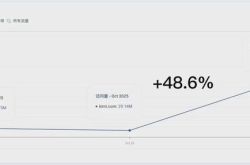After Xiaomi, is India about to "reap" vivo?
![]() 06/24 2024
06/24 2024
![]() 665
665

Image Source: Pixabay
Business for Chinese phone manufacturers in India is no longer as smooth as before.
Recent media reports have stated that vivo's Indian subsidiary is negotiating with the Tata Group for the acquisition of a majority stake to meet the Indian government's requirements for operational localization. It is revealed that the negotiations have entered the final stages, and vivo India hopes that Tata Group will increase the acquisition price.
Meanwhile, the Indian government requires Tata Group to hold at least 51% of the shares in vivo India, and the acquired joint venture must be led by Indian manufacturers with localized marketing networks.
This is also seen as an important step for India to promote its "Made in India" plan. Other Chinese phone manufacturers may also face the same situation, but they are unwilling to easily give up the Indian market.
01
Frequent Fines
In fact, in June 2023, India required Chinese phone manufacturers including Xiaomi, OPPO, realme, and vivo to introduce Indian equity partners into their Indian operations and appoint Indian executives to key positions such as CEO, COO, CFO, and CTO.
These companies were also required to appoint Indian contract manufacturers, form joint ventures with Indian companies to increase local manufacturing to the component level, expand exports from India, and employ local distributors. In addition, the Indian government also instructed these companies to comply with the law and not evade taxes in India.
Before that, phone manufacturers had been fined multiple times by India.
In June 2023, India accused Xiaomi of violating India's Foreign Exchange Management Act, officially charging Xiaomi's local department with illegally remitting funds to foreign entities by falsely claiming "royalty payments." Prior to this, India had seized Xiaomi's 55.51 billion rupees, the largest seizure of funds in India.
Xiaomi's market in India was also affected for a time.
In 2023, Xiaomi (1810.HK) reported revenue of 157.5 billion yuan from smartphones, a year-on-year decrease of 5.8%. Xiaomi explained that this was mainly due to the decline in smartphone shipments and ASP (average selling price). The ASP of smartphones decreased by 2.7% from 1,111.3 yuan in 2022 to 1,081.7 yuan in 2023. However, in 2023, the ASP of smartphones in mainland China increased by more than 19% year-on-year.
During the earnings conference call, Lu Weibing, Xiaomi's partner and group president, said that there are two main reasons for the decline in ASP in overseas markets. Firstly, Xiaomi's focus in the Indian market is still on returning to a healthy state, and it has not yet promoted the launch of high-end models. Secondly, in emerging markets such as Latin America, the Middle East, and Africa, Xiaomi still focuses on market expansion with low- to mid-range models. These markets are the main overseas markets for Xiaomi's new models.
Apart from Xiaomi, other phone manufacturers have also "escaped unharmed."
In July 2022, OPPO was accused of evading tariffs of nearly 43.9 billion rupees. India claimed that OPPO misused tariff exemptions when importing mobile phone components and did not include royalties when calculating the transaction value of imported goods.
In the same month, vivo was investigated on suspicion of money laundering. India said that vivo had established 22 companies in India for money laundering and accused these companies of suspected financial terrorism. Therefore, 119 Indian-related bank accounts of vivo were frozen, totaling 4.65 billion rupees. Subsequently, vivo provided approximately $119 million in guarantees to the bank, lifting the account freeze.
Samsung could not escape either. In January 2023, India accused Samsung of ev







